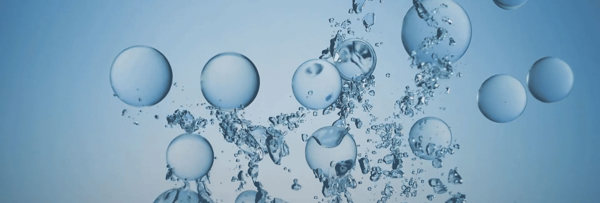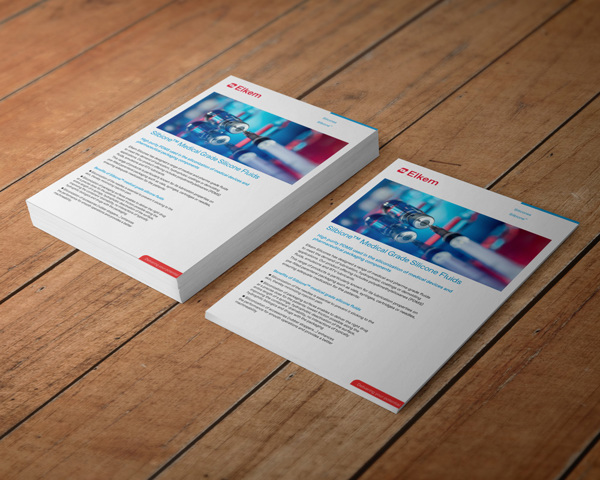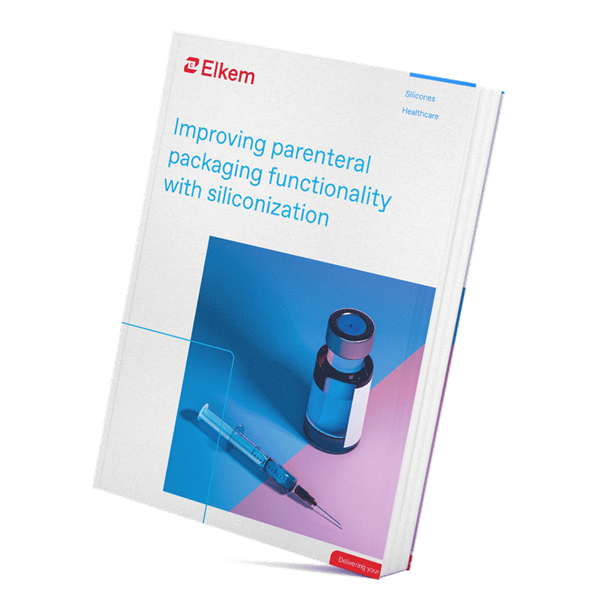Vials have been used to package injectable medicines since the first vaccine was developed against smallpox back in the 19th century. Since then, new pre-filled forms of parenteral packaging have been created and are gaining significant traction on the marketplace. Nevertheless, vials remain the choice of packaging for around 50% of marketed vaccines and are clearly not going anywhere anytime soon.
Similar but different to a vial is an ampoule, which is a small, hermetically sealed container used for particularly volatile and unstable chemical compounds, valid for single use only. Both vials and ampoules are most commonly manufactured from glass thanks to the material’s excellent container closure integrity (CCI). This means glass does an excellent job of protecting the highly sensitive biologic product against the ingress of moisture, oxygen, and other chemicals.
Why do pharmaceutical companies use silicones for prefilled parenteral packaging lubrification?
Maintaining the safety and efficacy of Active Pharmaceutical Ingredients (APIs) is essential. Parenteral packaging, which has an instrumental role to play not only in storing the drug but also administering it, is key to this. For decades, silicone-based fluids have been used by the parenteral packaging industry in order to improve the functionality and safety of injectable drugs.
Most typically, these products come in the form of polydimethylsiloxane (PDMS) oils. Another form is a silicone emulsion, which contains approximately 30% of PDMS oil in water. The process of applying a layer of one of these lubricants to the inside surface of a glass or plastic packaging container is called siliconization.
Caroline Moine is EMEA business development manager for Elkem Silicones’ Healthcare division. According to Moine, there are multiple reasons vaccine manufacturers use pharmaceutical-grade silicone fluids in their primary packaging. “The first reason is to create a hydrophobic barrier between the glass or plastic packaging and the active that has to be delivered to the patient,” she explains. “It’s a barrier because it prevents interactions between the API itself and the packaging’s surface.”
These interactions she refers to can indeed cause problems when the device’s surface interacts with drug formulations, leading to a modification of the API’s nature or availability which could force manufacturers to recall products from the market. As a result, it has become critical for manufacturers to add a good coating of silicone to the internal surface.
“Having this silicone on the surface will also increase the drainability of the fluid,” says Moine. “It means that you will completely empty the packaging container and ensure that your patient will have the correct dose of the active.”
This solves another key problem with glass vials: draining the entire contents of the container with a needle is often ineffective unless a lubricious silicone layer is present to help the vial’s evacuation. Without silicone, manufacturers may resort to overfilling the vial in order to ensure patients get a full dose with maximum efficacy. Using a well-performing silicone lubricant is therefore a much more cost-effective way of solving the issue.
“You also have advantages linked to the process,” adds Moine. “For example, the siliconization of stoppers helps their machinability. Having silicone at the surface of the stopper will help the processability to insert the stopper into the vial during the manufacturing process.”
Improving parenteral packaging functionality with siliconization
What makes pharmaceutical-grade silicone fluids the right choice?
Pharmaceutical-grade silicones for parenteral packaging
Silicone-based products are materials of choice for parenteral packaging siliconization primarily due to their chemical inertness and properties they bring to vials or ampoules, enabling the patient to receive the right drug at the right dose. Moreover, by selecting a pharmaceutical-grade silicone, vaccine manufacturers can be sure that the product they purchase is qualified for safety-critical medical applications in compliance with the European pharmacopoeia requirements.
Elkem Silicones is a fully integrated supplier of silicone materials that are designed to give companies the tools they need to improve people’s quality of life. Developed by Elkem, the Silbione™ product family comprises a range of pharmaceutical-grade silicones ideal for parenteral packaging siliconization.
In particular, Silbione™ FLD 70047 range (linear PDMS oils) and Silbione™ Emulsion (non-ionic emulsions of PDMS oil in water at 35%) are both well-suited for vials and ampoules and can be either sprayed or baked-on to the glass or plastic surface to improve the packaging’s performances.


